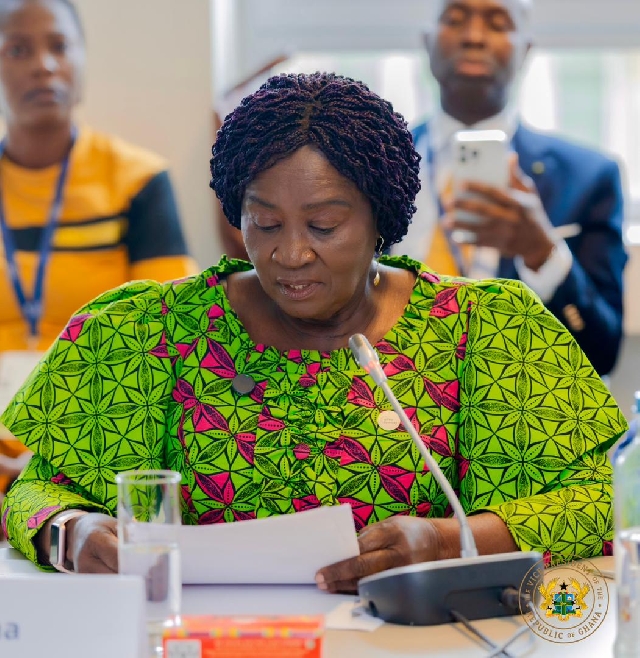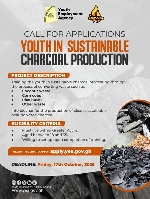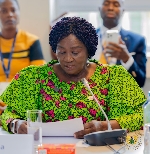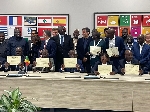Ghana to prioritise value addition in cocoa sector — Vice President
 Prof Jane Naana Opoku-Agyemang
Prof Jane Naana Opoku-Agyemang
Ghana’s Vice President, Prof. Naana Jane Opoku-Agyemang, has underscored the need for a decisive shift from exporting raw cocoa beans to developing a comprehensive cocoa economy that empowers farmers, creates jobs, drives industrialisation, and promotes sustainability.
Speaking at the EU Sustainable Cocoa Initiatives session during the 2025 Global Gateway Forum in Brussels, the Vice President said Ghana’s long-term goal is to process more of its cocoa locally, describing the move as both a legitimate aspiration and a strategic necessity for national development.
“We must move beyond exporting raw beans to building a cocoa economy that empowers our farmers, creates jobs, develops industry, and upholds sustainability,” Prof. Opoku-Agyemang stated.
She explained that true economic resilience lies higher up the value chain, where local processing not only creates employment but also strengthens industrial capacity, enhances Ghana’s negotiating power, and protects the country’s economic sovereignty.
Prof. Opoku-Agyemang noted that Ghana has already laid the foundation for this transformation through incentives under the Free Zones and Investment Promotion frameworks, which have expanded local processing capacity to about 500,000 tonnes.
She added that the government aims to further increase volumes by improving logistics, ensuring a reliable energy supply, and enhancing the overall business environment.
Highlighting the African Continental Free Trade Area (AfCFTA) as a key enabler, she said regional value chains will allow Africa to retain more wealth within the continent through the production of finished goods such as chocolate and other cocoa-based products.
On financing, Prof. Opoku-Agyemang identified access to affordable capital as a major barrier for local processors, particularly smaller firms.
She called for structured, blended financing mechanisms that combine long-term investment with affordable working capital, risk-sharing tools, and technical assistance for rural enterprises.
Touching on sustainability, the Vice President said Ghana is introducing digital traceability systems to ensure transparency across the cocoa supply chain, combat child labour, and boost consumer confidence.
She also reaffirmed that the Ghana Cocoa Board (COCOBOD) continues to guarantee equitable access to beans for both local processors and exporters.
Prof. Opoku-Agyemang urged global partners to address tariff escalations that penalise processed cocoa products, noting that while raw beans attract zero import duties, value-added exports such as cocoa powder and chocolate face higher tariffs—a situation she said undermines fair trade.
She emphasised that Ghana’s broader transformation agenda—anchored on the Big Push Initiative and the Connect 24 pillar of the 24-hour economy—is strengthening infrastructure for agro-industrialisation, including reliable energy and digital systems.
Citing the Living Income Differential (LID) policy introduced by Ghana and Côte d’Ivoire, she said it reflects both nations’ joint commitment to ensuring cocoa farmers earn fair and decent incomes.
Reaffirming Ghana’s dedication to building a resilient, inclusive, and sustainable cocoa economy, Prof. Opoku-Agyemang called on the EU Sustainable Cocoa Initiative and the Global Gateway Framework to deepen collaboration with Ghana in driving investments in processing, unlocking finance for cooperatives and SMEs, and ensuring that sustainability standards remain supportive rather than punitive.
“Let us work together to create a cocoa sector that is fair, sustainable, and beneficial to all,” she concluded.
Source: Classfmonline.com/cecil Mensah
Trending Business

GoldBod engages GGSA, Minerals Commission and Lands Ministry to advance geological investigations for model small-scale mines
04:16
Metro Mass Transit boosts monthly revenue to GH¢14 million despite fewer buses — MD
11:47
YEA opens applications for youth in sustainable charcoal production project
10:54
Bryan Acheampong donates critical navigation equipment to Volta Lake Transport
09:15
Ghana to prioritise value addition in cocoa sector — Vice President
00:15
IACG urges 'catch them young' approach to engage the youth to embrace insurance
19:37
DVLA set to establish new ultra-modern operational centre in North Dayi
14:24
Gov't to cough up US$5 billion in judgement debt, if it cancels KGL-NLA deal-Razak Kojo Opoku reveals
13:19
Ghana reaches IMF staff-level agreement after 5th review
12:50
Ghana secures €154 million from Italy to transform agri-food systems
12:36




